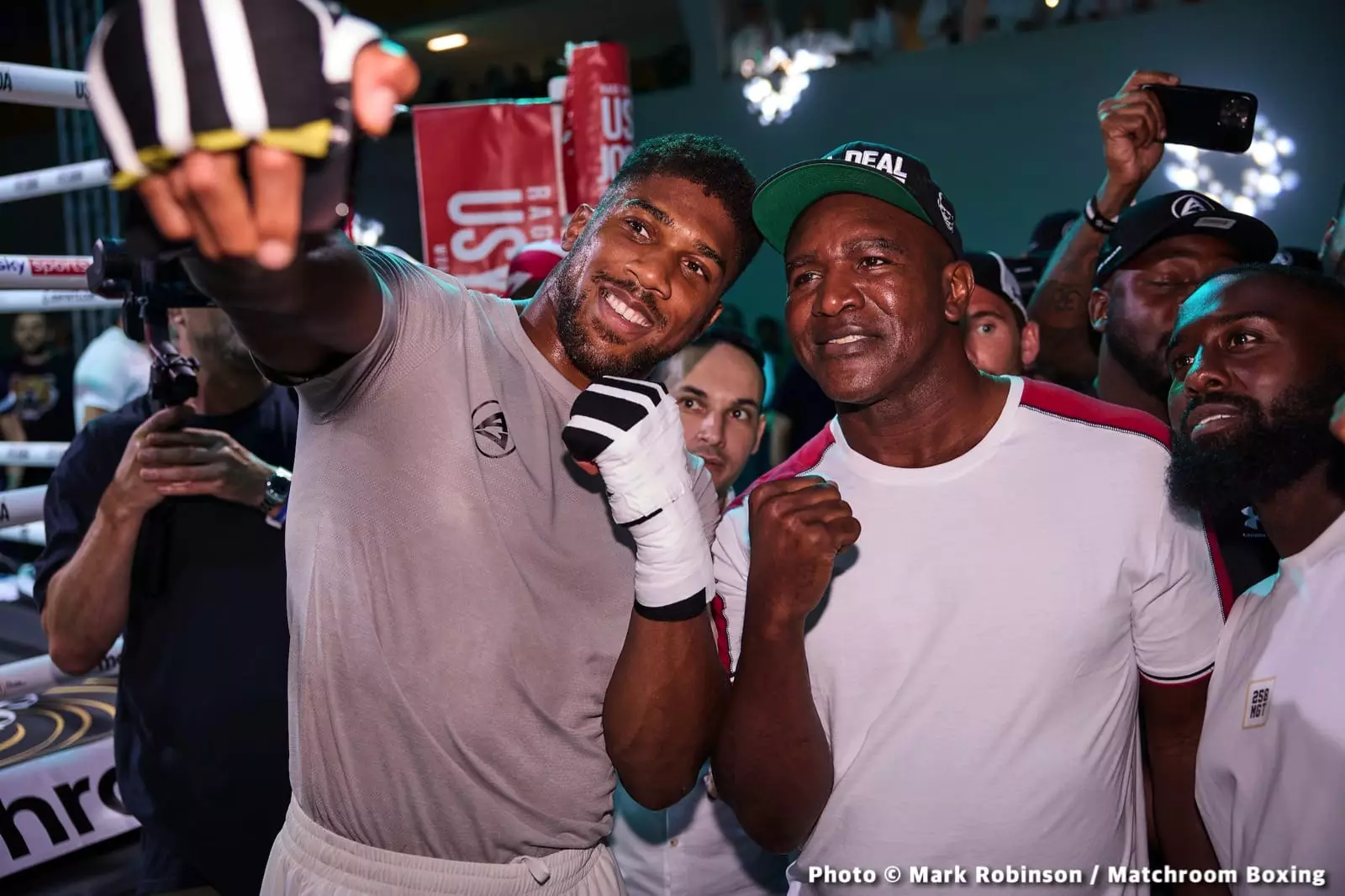Evander Holyfield, a name synonymous with resilience, prowess, and the sweet science of boxing, recently shared his thoughts at the esteemed Ring Magazine Awards ceremony in London. During a conversation with journalist Radio Rahim, Holyfield expressed his longstanding frustration regarding his legacy, particularly his claim as the only four-time heavyweight champion. His assertion prompts a deeper exploration into the criteria used to determine greatness in boxing and shines a light on the often contentious debate surrounding the title of “the greatest heavyweight of all time.”
Holyfield’s claim to fame primarily revolves around his unprecedented achievement as the first and only four-time heavyweight champion. His reigns comprised a notable timeline: he initially claimed the heavyweight championship in 1990 and held the undisputed title until 1992. He subsequently regained titles multiple times, a feat he has now maintained for over two decades. Holyfield’s reflection upon his achievements spotlights an essential aspect of athletic legacy; despite the accolades, recognition remains subjective and often reliant on historical context, media portrayal, and public perception.
It’s essential to note that Holyfield’s records include victories over formidable opponents like Buster Douglas, Riddick Bowe, and George Foreman, proving he could handle the heftiest challenges in the ring. His assertion about being overshadowed by Muhammad Ali cannot be dismissed lightly. “I’m the only four-time heavyweight champion of the world, but they’re still talking about Ali when I broke his record,” Holyfield stated, encapsulating his dissatisfaction regarding public acknowledgment of his accomplishments.
While undoubtedly impressive, the question of who ranks as the greatest heavyweight fighter transcends mere statistics and accolades. It invites a nuanced discussion about the strength of one’s opposition and the historical significance of victories. Although Holyfield boasts a remarkable list of opponents, critics often highlight Ali’s unparalleled legacy, which includes transcending the sport to become a global cultural icon. During much of Ali’s career, he fought with a singular focus on the world heavyweight title, whereas Holyfield operated within a multi-title environment, competing for various belts simultaneously.
The comparison between the two giants of boxing is further complicated by the evolution of the sport. When Ali was champion, there was generally just one recognized world heavyweight champion, thereby giving his title a weight that was somewhat consolidated. Conversely, Holyfield’s era was characterized by multiple sanctioning bodies and titles, raising questions about the significance of his title reigns amidst the fragmented landscape of heavyweight boxing.
Critics often argue that title achievement alone cannot be the deciding factor in determining greatness; instead, the quality of opponents and the manner of victories must be emphasized. Consideration also needs to be paid to the legacy that transcends the ring. In boxing, a fighter’s persona, character, and contribution beyond their battles weigh heavily on their historic culmination. For instance, Ali’s influence on civil rights and social justice positions him as a cultural titan, whereas Holyfield’s legacy remains principally focused on his sporting achievements.
Perhaps the most riveting point in this discourse is Holyfield’s assertion regarding John Ruiz, a name often raised in this legacy debate. While wins over prominent names may add glitter to a career, the questioning of the respect given to certain title victories draws attention to the qualitative nature of boxing accolades. Is beating an opponent like Ruiz, who many may not view as a legendary challenger, sufficient to cement one’s status in the pantheon of all-time greats?
Evander Holyfield’s reflections reveal more than just his personal triumphs; they underscore the complexity inherent in defining boxing greatness. As he passionately asserts his place among the elite, one must appreciate the nuances that surround such a claim. Exciting dialogues such as these foster a deeper understanding of both the sport and those who grace its stages. Ultimately, while Holyfield’s legacy is remarkable and undeniably significant, the question persists: can one champion’s history overshadow another’s, even when the stats seem to favor the former? The debate surrounding greatness will likely endure as long as the sport itself remains alive, with champions rising and legends, like Holyfield and Ali, continuing to captivate the hearts of boxing fans and historians alike.

